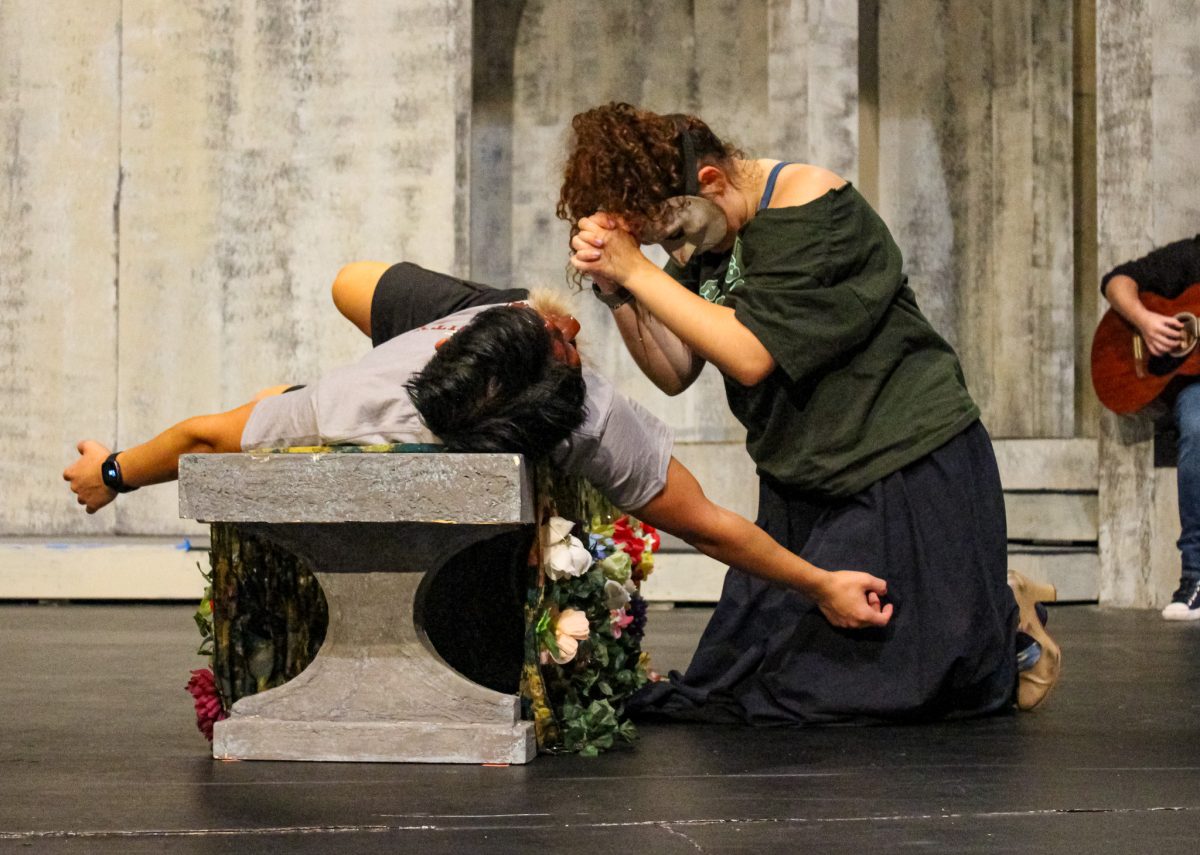It’s a situation that’s been explored before in many cinematic and literary works: a gifted man whose wife works in the shadows, unacknowledged, yet is constantly expected to make sacrifices for his happiness. But the subject matter has never been handled like this.
The director of “mother!”, Darren Aronofsky, who also received acclaim for 2013’s “Black Swan,” is known for esoteric films that usually contain some psychological and surreal aspects. His newest film is no different. The main couple is never named. Instead, the characters’ official monikers, “˜Mother’ (played wonderfully by Jennifer Lawrence) and “˜Him’ (played by the imposing Javier Bardem) suggest a universality of the story with archetypes that represent a creation myth of the universe.
The story has many mythical elements. While the plot begins as a domestic drama centering around a poorly made decision to invite a guest inside who shows up at the pair’s doorstep one night, it soon becomes clear that elements of surrealism and magic are at play. The glass ball in His study seems to have a special significance, Mother drinks a mysterious potion accompanied by a trilling sound effect, and “” most ominously of all “” a human heart pumps away inside the walls of the house that Mother meticulously decorates.
What does it all mean? Curious readers will have to go to the theaters to find out, but the mystery eventually builds to an intense conclusion.
I enjoyed this film. Jennifer Lawrence’s performance was stunning, and the story has a lot of metaphorical richness. Viewers who’ve taken classes in film studies or enjoy close readings of media will also find a lot to love about “mother!”. The character of Mother is alternately reminiscent of Mother Earth, Jesus’ mother Mary and humanity itself becoming estranged from its creator.
However, due to its metaphorical implications and the increasingly graphic and gruesome content in the latter half of the film, “mother!” has incurred a lot of controversy from film critics. Brian Tallerico of the popular reviewing website RogerEbert.com found it “at times horrifying, at times riveting, at times baffling and at times like nothing you’ve ever seen before,” indicating that something about this film is worth watching. On the other hand, Rex Reed, reviewer for the New York Observer, wrote of it, “I hesitate to label it the “˜Worst movie of the year’ when “˜Worst movie of the century’ fits it even better.”
It seems that the mixed response to “mother!” holds true for Trinity’s campus as well. I spoke to first-year Rachel Indest, who felt that the shocking content’s inclusion was justified.
“Every time there was a shocking scene I saw a wave of people walk out … and I think it just wasn’t fair, because I think the imagery helped to portray what the movie really was,” Indest said.
Callie Izquierdo, a first-year student, had an interesting take on the genre.
“There are a lot of aspects of sort of a situational comedy, like how situations escalate so quickly,” Izquierdo said.
The mixed reactions also stretched into the faculty’s opinions about the film.
“I left disgusted rather than discomfited. Other Aronofsky films have struck me as more effective in raising urgent questions about the culture’s tendency to unsupportable habits. … “˜mother!’, to be honest, I wish I hadn’t watched at all,” said Benjamin Stevens, visiting assistant professor of classical studies.
While “comedy” isn’t the word most audience members would think of, there are surreal and absurd elements of this film. One thing is certain: it’s definitely not boring.







